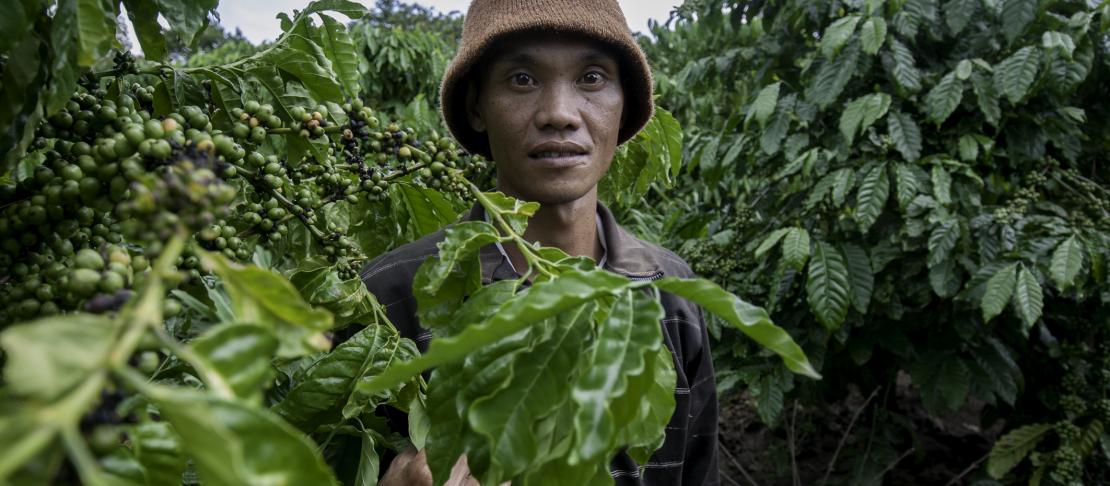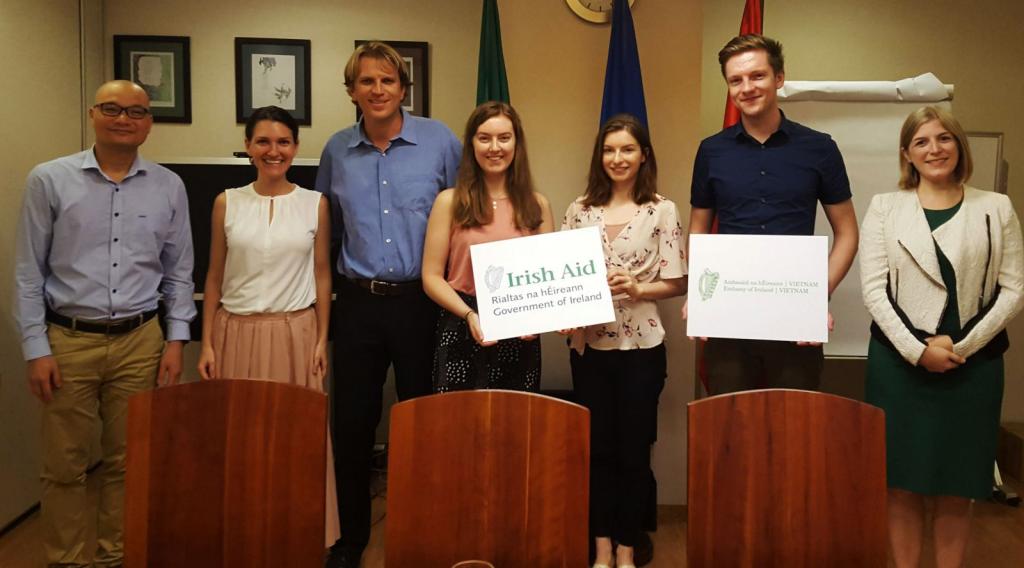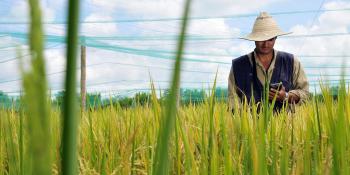National University of Ireland Galway students conduct research activities in Southeast Asia

To strengthen the research for development initiatives in climate change and agriculture, more collaboration should be done with the academia.
In partnership with the CGIAR Research Program on Climate Change, Agriculture and Food Security (CCAFS), the National University of Ireland in Galway (NUIG) implemented student research projects in Southeast Asia, particularly in Vietnam. The research is conducted under the guidance of the International Center for Tropical Agriculture (CIAT) – Asia Regional Office in Hanoi. For this year, three MSc CCAFS students conducted their graduate research in various research areas in the region, including:
- Eanna Crowe assessed the potential of climate-smart agriculture (CSA) for reducing air pollution in Southeast Asia. His research also looked into the causes of air pollution in Southeast Asian cities linked to agricultural practices, local power plants, and international influences from countries such as China and Russia;
- Shauna-Rose Murphy researched the water footprint of Robusta coffee production in Vietnam's Central Highlands. Her study highlights the importance of efficient water management in ensuring the viability of coffee production in the future; and
- Jan Rafter worked on the assessment of the carbon impact of cocoa production in Indonesia. Her study found that total carbon lost from cocoa-related deforestation is approximately five times greater than the total cocoa carbon stock. Thus the most urgent recommendation is action to prevent further forest loss. Another mitigation option in existing cocoa lands is to increase the level of shade across open canopy cocoa farms, such as those prevalent in Sulawesi. This contributes to Indonesia’s Nationally Determined Contribution targets in agriculture.
 NUIG students and CIAT experts, together with the Irish Aid and Irish Embassy officials. Photo: Vinh Le Bui (CIAT Asia)
NUIG students and CIAT experts, together with the Irish Aid and Irish Embassy officials. Photo: Vinh Le Bui (CIAT Asia)
As a culminating activity, the graduate students presented the results of their studies to the officials of Irish Aid and the Irish Embassy in Vietnam in July 2018. Present at the event were: Ms. Reachbha FitzGerald and Mr. To Ngoc Anh of Irish Aid, and Dr. Peter Laderach, Ms. Tiffany Talsma, and Dr. Vinh Le Bui of CIAT-Asia.
Plans for further collaboration among the partners were also discussed during the meeting. Dr. Bui shared CIAT’s initiative implementing Nong Thon Moi─Vietnam’s largest National Target Program on New Rural Development, under the management of the Ministry of Agriculture and Rural Development. The program will be using the results of the CCAFS project in Yen Bai, particularly from Ma Climate-Smart Village, to develop a new set of criteria for climate-resilient agriculture implementation. As the Embassy of Ireland is already supporting a number of development programs, Irish Aid and the Embassy of Ireland expressed the possibility of supporting this new initiative.
The group also discussed the proposed projects between the Vietnam National University of Agriculture and NUIG. These include the exchange of capacity and research, climate risk mapping and spatial decision support systems. These systems are used for policy scenario-based integration of CSA practices for climate resilience and poverty reduction.
Read more:
- Research project: NUI Galway's Masters degree program in Climate Change, Agriculture and Food Security (MScCCAFS)
- News update: Climate resilience to be integrated into Vietnam’s national development program
- News update: CCAFS and Irish partners committed to training the next generation of climate change, agriculture and food security researchers
Eisen Bernardo is the Senior Communication Specialist of CCAFS Southeast Asia.



